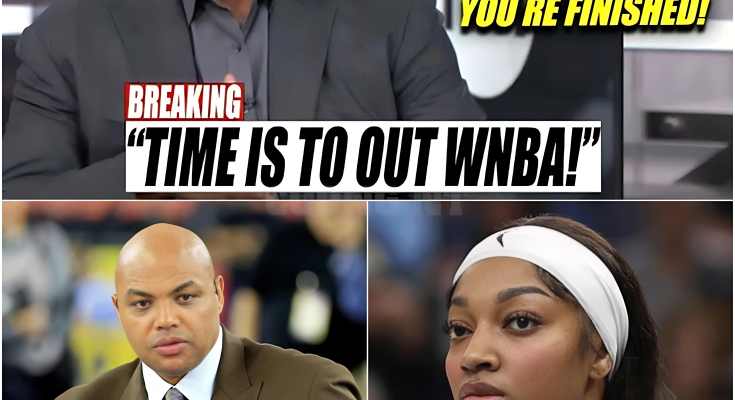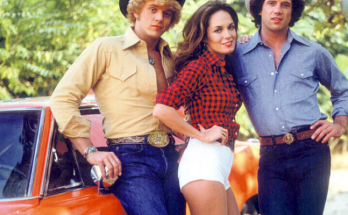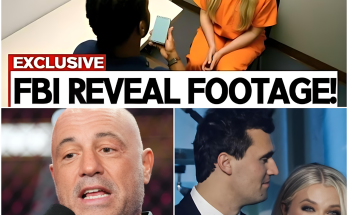
Charles Barkley Slams the WNBA’s Caitlin Clark Controversy — And Warns the League’s Future Is at Risk
In one of his most fiery takes to date, NBA legend Charles Barkley has unleashed a blistering critique of the WNBA — and he didn’t hold back. In response to a recent investigation involving rookie sensation Caitlin Clark, Barkley not only defended her against what he called “petty jealousy,” but exposed a deeper crisis within the league: a growing divide threatening to derail the momentum women’s basketball has worked so hard to build.
With the league under intense scrutiny, Barkley’s message was clear: “They couldn’t have messed this Caitlin Clark moment up any worse if they tried.” And in that single sentence, he captured what many fans have been feeling for weeks.
It began with rumors. Accusations that Caitlin Clark — the 2024 WNBA draft’s No. 1 pick — was receiving special treatment. That whispers of racial bias and unfair fan behavior toward Angel Reese and other players were being swept under the rug. The league responded with a formal investigation, aiming to restore trust.
But as Barkley and countless fans pointed out, it was too little, too late. The investigation, he said, was a “witch hunt” fueled not by fact, but by envy. When the results revealed zero evidence of misconduct, the damage had already been done. The WNBA had not only cast doubt on its biggest draw but had also alienated the very fans who’ve elevated the sport to new heights.
Clark’s arrival in the WNBA has been nothing short of revolutionary. Draft ratings surged by 400%. Arena attendance spiked. Her jersey became the league’s top seller. She brought in sponsors, fans, and headlines — singlehandedly growing the league at a pace previously unimaginable.
But her success hasn’t come without backlash. On the court, she’s been fouled hard and at times targeted physically. Off the court, her meteoric rise has stirred feelings of resentment among players who’ve spent years grinding for a fraction of the recognition. Barkley acknowledged that frustration, especially from stars like Angel Reese, but he urged everyone to zoom out.
“You can go hard at her on the court,” he said. “But the visibility she brings fills all our wallets in the long run.”
Angel Reese hasn’t stayed quiet. Frustrated by the Clark craze, she’s spoken out about feeling overshadowed. Her intensity on the court — celebrated by some, criticized by others — is now central to one of the WNBA’s most compelling storylines. The rivalry between Clark and Reese, born in college and now reignited in the pros, has captivated the nation.
And Barkley? He welcomes it — to a point. He made it clear that it’s not the players fueling the toxicity. It’s the media, the league’s slow response, and the fan divisions turning healthy competition into cultural warfare. In his eyes, it’s not trash talk or bold play that’s the problem. It’s the WNBA’s failure to harness this drama into something constructive.
Barkley’s harshest criticism wasn’t aimed at players. It was reserved for the league itself. He accused WNBA leadership of fumbling the biggest opportunity in its history. Instead of celebrating Caitlin Clark’s impact, they turned it into a controversy. Instead of issuing a sincere apology after a baseless investigation, they released a cold, corporate statement.
“The real issue isn’t race or rivalry — it’s envy,” Barkley said. “You have legends working their entire careers in obscurity, and now a rookie is soaking up endorsements, fame, and media love. But instead of building her up, they’re tearing her down.”
It’s a sentiment many fans share. The Indiana Fever — Clark’s team — has accounted for nearly half of the WNBA’s recent broadcast value. Her presence has spiked merchandise sales by over 500%. She is, as Barkley puts it, “not just moving the needle — she is the needle.”
The path forward is clear, Barkley insists: stop the drama and let these women play. “Let them shine,” he urged. “They’re bigger than this beef. They’re the future of the sport.”
That future includes Caitlin Clark, whose arrival has redefined what’s possible for women’s basketball. It includes Angel Reese, whose defiant confidence keeps fans tuning in. And it includes every young girl watching, believing that she too can make history.
But that only happens if the WNBA gets out of its own way. If it stops fueling division and starts embracing unity. Barkley’s warning is loud and clear: mishandling this moment won’t just hurt ratings — it could derail the entire future of the sport.
Because what’s happening isn’t just about one rookie or one rivalry. It’s about women’s basketball finally taking center stage. The only question is whether the league is ready to handle the spotlight.




